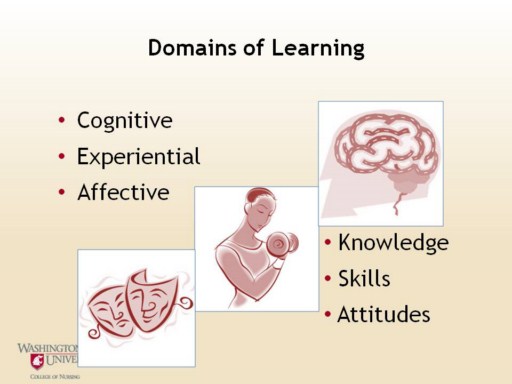| front |1 |2 |3 |4 |5 |6 |7 |8 |9 |10 |11 |12 |13 |14 |15 |16 |17 |18 |19 |20 |21 |22 |23 |24 |25 |26 |27 |28 |29 |30 |31 |32 |33 |review |
 |
Sometimes these domains of learning are also referred to as KSA’s.
Cognitive – Knowledge Experiential – Skills Affective- Attitudes
In the book Experiential Learning, David Kolb describes learning as a four-step process. He identifies the steps as (1) watching and (2) thinking (mind), (3) feeling (emotion), and (4) doing (muscle). He draws primarily on the works of Dewey (who emphasized the need for learning to be grounded in experience), Lewin (who stressed the importance of a people being active in learning), and Jean Piaget (who described intelligence as the result of the interaction of the person and the environment).
David Kolb (1984). Experiential learning: Experience as the source of learning and development. Englewood Cliffs, NJ: Prentice-Hall. |